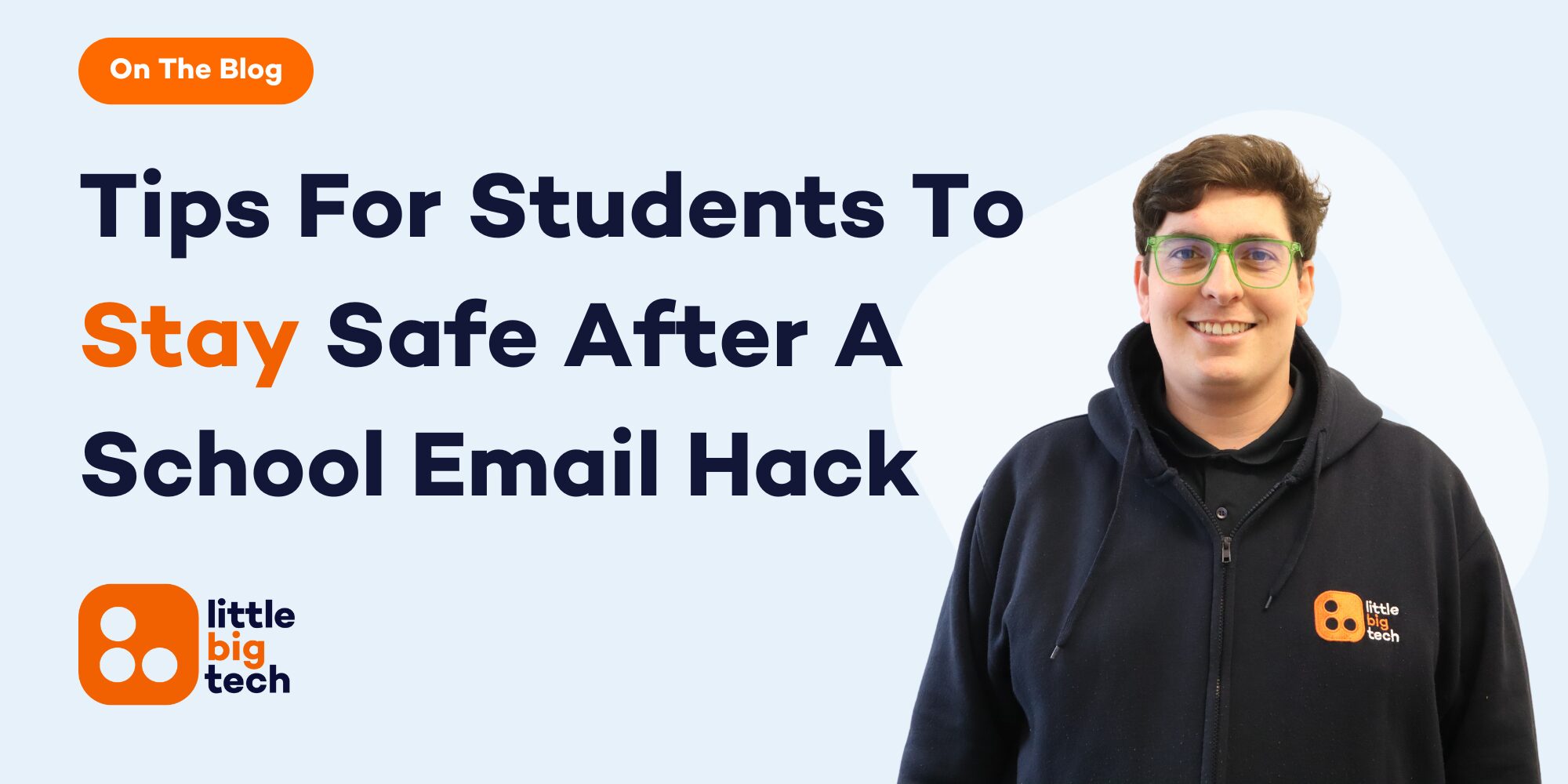If you’re searching for Apple IT issues help, you’re likely fed up with the same problem returning over and over again. You fix one thing, only for something else to go wrong. Your Mac crashes. Your iPhone won’t update. Your iPad freezes halfway through a task. And most times, the so-called “fix” doesn’t last.
This article explains why most quick fixes fail, and what proper support actually looks like when it comes to Apple devices. Whether you’re a business owner, a team leader, or just someone who depends on Apple every day, you’ll find useful, honest answers here.
Many people try to sort Apple problems by watching a video or reading a blog post. These tips can help in the short term, but they rarely stop the issue from coming back. That’s because they don’t fix the cause, they just patch the problem. Real support goes further. It checks what’s happening under the surface, and it keeps things working long after the repair.
We’ll also look at what makes a good IT partner, and how you can avoid the stress of fixing things yourself. Our guide is based on real problems users face every day, with practical advice that works.
If you want to stop wasting time on trial and error, and start getting the right help, you’re in the right place.
The Common Apple Problems That Keep Coming Back
If you’ve ever had a problem with your iPhone, iPad or Mac that seems to come back no matter what you do, you’re not alone. Many Apple users deal with repeat issues, even after trying quick fixes. That’s when they realise they need proper Apple IT issues help to get to the bottom of it.
Here are some of the most common problems that keep returning.
- Slow or freezing Macs: A Mac that slows down over time is one of the most frequent complaints. It could be due to too many apps running, low memory, or a lack of regular updates. Some users find that even after restarting or closing apps, the same issue returns within days. Apple’s own advice on freeing up memory can help, but if the problem keeps coming back, it likely needs deeper checks.
- iPhones not charging properly: Another common issue is when iPhones stop charging or charge slowly. This might be due to a worn-out cable or a blocked charging port. But when it happens over and over again, the issue could be with the battery itself or a fault with the phone. If you’re unsure, support can test your device and confirm whether it needs a new part.
- iCloud sync problems: Sometimes files, contacts or photos won’t sync between devices. This can be confusing and makes people think data has gone missing. We covered this in our blog on how to fix iCloud syncing issues, but if it continues, proper IT support is the best step.
- Outlook or Teams crashing on Mac: Businesses using Microsoft tools on Apple devices often face issues with apps crashing or not loading properly. This is something we explored in our recent post on Microsoft products IT support, and it’s a growing concern as more workplaces rely on hybrid tools.
These problems don’t just waste time, they break focus and cause stress. If you’ve had to deal with the same fault more than once, it’s a clear sign that you need real Apple IT issues help to fix it properly.
Why Quick Fixes Don’t Work And Often Make Things Worse
When something goes wrong with an Apple device, most people head straight to Google or YouTube. They find a quick fix, follow the steps, and for a moment, everything seems fine. But the same problem usually returns, and often, it gets worse.
That’s the risk with relying on surface-level fixes. These solutions might clear the fault for a short time, but they rarely solve the cause. Proper Apple IT issues help goes deeper. It checks what’s really happening and sorts the issue from the inside out.
1. Online tips are often out of date
Apple releases regular updates that change how devices behave. A fix that worked last year might not work now. In some cases, following outdated advice can even cause new problems. That’s why Apple encourages users to keep their software updated, but support teams can also check for faults that updates alone won’t fix.
2. Temporary solutions hide bigger problems
If your iMac keeps freezing and you restart it every time, it might seem like it’s working. But if it keeps happening, there’s a bigger issue underneath, like a failing hard drive or memory problem. These kinds of faults don’t go away on their own. Ignoring them could lead to full breakdowns or lost data.
3. DIY repairs risk damaging your device
Some users try to open their devices, run deep clean tools, or download third-party software they don’t fully understand. This can lead to hardware damage, malware, or the loss of files. We explained more about this risk in our post on why most DIY fixes fail, and it’s something we see far too often.
4. Wrong settings make things worse
Even changing the wrong privacy or storage setting can affect how apps behave. Many quick fix guides don’t explain the knock-on effects of certain changes, especially on synced accounts or shared devices.
If you’re tired of guessing and hoping a temporary fix will do the job, it’s time to get help that actually works. Proper support stops the cycle and keeps your devices working the way they should.
Apple IT Issues Help That Solves The Problem Fully
Many Apple users try a fix, only to see the same issue return days or weeks later. That’s where proper Apple product IT issues help makes all the difference. Instead of covering up the fault, it looks at what’s really causing the problem and sorts it for good.
Here’s how full support works, and why it’s more than just ticking boxes.
1. Checks the full system, not just one app: Proper support looks at everything not just the app that’s causing trouble. If your MacBook keeps crashing while using Excel or Pages, the problem might not be the app at all. It could be memory, updates, or storage. Our post on slow Apple devices covers how these problems are often linked.
2. Finds hidden problems you might not see: Some faults don’t show clear signs. A sync error might seem like a Wi-Fi issue, but it could be your iCloud account. A battery that drops fast could be caused by a background app you didn’t even open. Trained support teams use proper tools to check what’s really going on inside the device.
3. Fixes don’t rely on guesswork: One of the biggest problems with DIY fixes is that they rely on trial and error. A proper support provider knows how to read system logs, test hardware, and track down the exact cause. This means they can fix it the first time, no guesswork, no risk.
4. Keeps the problem from returning: A good fix is one that lasts. That’s why full support includes checking for future risks. This could mean changing settings, removing apps that cause problems, or updating software safely. Apple has its own advice on keeping devices running well, but real support goes beyond that.
5. Offers real help, not just advice: You don’t just get told what might be wrong. You get someone who fixes it and checks it stays fixed. It’s support that works with you, not just for now, but for the long run.
What To Look For In A Reliable Apple Support Partner
When your Apple devices start playing up again and again, it’s clear that quick fixes aren’t enough. What you need is proper support, but not all IT providers are the same. Knowing what to look for in a reliable Apple support partner can save you from wasted time, stress and even lost data.
Here’s what really matters when choosing someone to trust with your tech.
1. Experience with Apple products
Not every IT provider understands Apple systems. Some focus mostly on Windows or only know the basics of iOS and macOS. A good support partner should know how to handle common Apple issues, spot faults fast and work across all devices, iPhone, iPad, Mac and more.
2. Fast response and real answers
If your Mac won’t start or your iPhone has lost all its files, you can’t afford to wait days for a reply. A reliable provider should offer clear timelines and fast help, especially when you rely on your devices for work. This is something we’ve built into our own support packages, so our clients never feel left in the dark.
3. No jargon, just clear help
Many people feel overwhelmed by tech talk. A trusted support team should explain what’s wrong in plain terms, and what they’re doing to fix it. You should never be made to feel silly for not knowing how something works.
4. Safety and data protection
Giving someone access to your device means trusting them with your personal or business data. A professional team will follow the right rules, use secure methods, and never risk your privacy. The Information Commissioner’s Office offers guidance on keeping your devices safe, but your support partner should already be doing it.
5. Ongoing care, not one-time fixes
Great support doesn’t stop once the issue is gone. Look for someone who can check in, keep your system running smoothly, and spot problems before they start. That’s what makes support worth having, someone who looks out for your tech so you don’t have to.
Let’s Fix It Properly With Support That Actually Works
At Little Big Tech, we know how frustrating it is to deal with the same Apple problems over and over again. You try a fix, it works for a bit, then it’s back to square one. We’ve seen it too many times , people wasting hours on guesswork or using online advice that doesn’t suit their device.
That’s why we don’t offer quick tips. We offer proper Apple IT issues help that sorts the problem fully, from the inside out. We don’t patch things. We fix them. Whether it’s a Mac that keeps freezing, an iPhone that won’t back up, or an iPad that crashes during work, we find out why it’s happening — and stop it from coming back.
What makes our service different is that we keep things simple. No jargon. No delays. Just fast, honest support that gets your device back to working the way it should. We work with businesses, remote teams and everyday users who need their Apple tech to run smoothly, and we make sure it does.
If your Apple device has been giving you problems, and you’re tired of wasting time with fixes that don’t last, now’s the time to get help that actually works. We’re ready to support you. Call us today on 03333 055 331 or Email info@littlebigtech.co.uk Or visit us at Office 6 Boleyn Suites, Hever Castle Golf Club, Hever Road, Edenbridge, Kent, TN8 7NP. Let Little Big Tech handle the issue properly, so you don’t have to deal with it again.











